
The Moody Blues were an English rock band formed in Birmingham in 1964, initially consisting of keyboardist Mike Pinder, multi-instrumentalist Ray Thomas, guitarist Denny Laine, drummer Graeme Edge and bassist Clint Warwick. The group came to prominence playing rhythm and blues. They made some changes in musicians but settled on a line-up of Pinder, Thomas, Edge, guitarist Justin Hayward and bassist John Lodge, who stayed together for most of the band's "classic era" into the early 1970s. Edge was the group’s sole continuous member throughout their entire history.

Jackie DeShannon is an American singer-songwriter with a string of hit song credits from the 1960s onwards, as both singer and composer. She was one of the first female singer-songwriters of the Rock and Roll period. She is best known as the singer of "What the World Needs Now Is Love" and "Put a Little Love in Your Heart", and as the composer of "When You Walk in the Room" and "Bette Davis Eyes", which were covered by The Searchers and Kim Carnes, whose versions have been hits for both these acts.
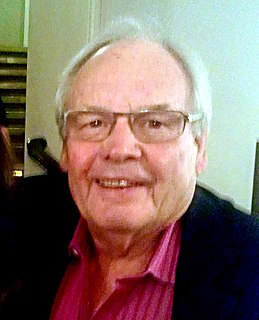
Anthony Peter Hatch is an English composer for musical theatre and television. He is also a songwriter, pianist, arranger and producer.
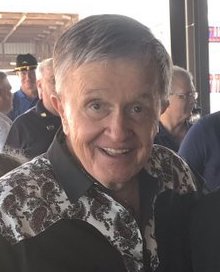
James William Anderson III, known professionally as Bill Anderson, is an American country music singer, songwriter, and television host. His soft-spoken singing voice was given the nickname "Whispering Bill" by music critics and writers. As a songwriter, his compositions have been covered by various music artists since the late 1950s, including Ray Price and George Strait.

Bernard Alfred Nitzsche, known professionally as Jack Nitzsche, was an American musician, arranger, songwriter, composer, and record producer. He first came to prominence in the early 1960s as the right-hand-man of producer Phil Spector and went on to work with the Rolling Stones and Neil Young, among others. He also worked extensively in film scores, notably for films such as Performance, The Exorcist and One Flew Over the Cuckoo's Nest. In 1983, he won the Academy Award for Best Original Song for co-writing "Up Where We Belong" with Buffy Sainte-Marie.
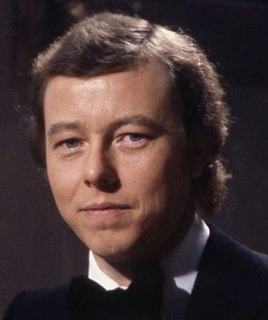
Peter Skellern was an English singer-songwriter and pianist who rose to fame in the 1970s. He had two top twenty hits on the UK Singles Chart - "You're a Lady" (1972), which typifies his signature use of brass bands and choral arrangements for a nostalgic and romantic feel, and "Hold On to Love" (1975). In the 1980s, Skellern formed the band Oasis with Julian Lloyd Webber and Mary Hopkin and established a musical comedy partnership with Richard Stilgoe in cabaret.

Deborah Allen is an American country music singer and songwriter. Since 1976, Allen has issued 12 albums and charted 14 singles on the Billboard Hot Country Songs chart. She recorded the 1983 crossover hit "Baby I Lied", which reached No. 4 on the country chart and No. 26 on the Billboard Hot 100. Allen has also written No. 1 singles for herself, Janie Fricke, and John Conlee; Top 5 hits for Patty Loveless and Tanya Tucker; and a Top 10 hit for The Whites.
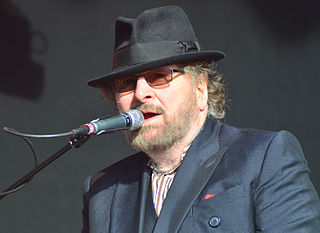
Charles Nicholas Hodges was an English musician and singer who was the lead vocalist of musical duo Chas & Dave.
Walter "Bunny" Sigler was an American R&B singer, songwriter, multi-instrumentalist and record producer who did extensive work with the team of Kenny Gamble and Leon Huff, and was instrumental in creating the "Philly Sound" in the early 1970s.
Leslie David Reed was an English songwriter, arranger, musician and light-orchestra leader. His major songwriting partners were Gordon Mills, Barry Mason, and Geoff Stephens, although he wrote songs with many others such as Roger Greenaway, Roger Cook, Peter Callander, and Johnny Worth.
Chris Karan is a Britain-based Australian jazz drummer and percussionist of Greek descent.

Tommy Hunt is an American soul/northern soul singer, and a 2001 Rock and Roll Hall of Fame Inductee as a member of famed R&B group The Flamingos.

William Francis Kenny Jr. was an American vocalist with a wide vocal range spanning four octaves. Often regarded as one of the most influential high-tenor singers of all time, Kenny was noted for his "bell-like" vocal clarity and impeccable diction. Although he is most famous for his role as lead tenor with the Ink Spots, Kenny also led a successful solo career after disbanding the Ink Spots in 1954. Throughout the 1950s and 60s Kenny recorded, toured the world and appeared on many popular variety television shows. In 1966 Kenny became the star and host of his own musical variety show The Bill Kenny Show which aired on CBC. In 1989, 11 years after his death, Bill Kenny was inducted into the Rock and Roll Hall of Fame. Kenny is often noted as being the "godfather" of R&B tenor vocalists.
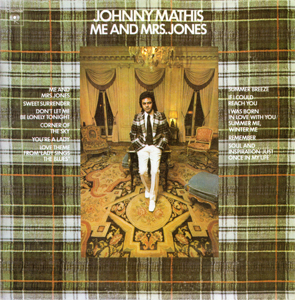
Me and Mrs. Jones is an album by American pop singer Johnny Mathis that was released in January 1973 by Columbia Records. While it does cover several big chart hits of the day like his last album, Song Sung Blue, did, it also includes songs that didn't make the US Top 40 or had never charted.

Tuneweaving is the third album by American popular music group Dawn released in 1973 by Bell Records. The title track reached number one in both the US and UK. In terms of sales, this single was the most successful in the group's career, starting a string of seven consecutive Hot 100 appearances. Another track, "You're a Lady" by English singer/songwriter Peter Skellern, reached number 70 on the US charts. The group changed their name to "Tony Orlando and Dawn" later in 1973.

"Mr. Soft" is a song by the British rock band Cockney Rebel, fronted by Steve Harley, which was released in 1974 as the second single from their second studio album The Psychomodo. The song was written by Harley, and produced by Harley and Alan Parsons. "Mr. Soft" peaked at number 8 in the UK Singles Chart.
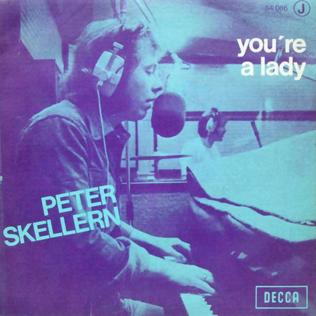
"You're a Lady" is the debut single by British singer-songwriter Peter Skellern. Skellern's recording of the song was his first and biggest hit, reaching number three on the UK Singles Chart and number 50 on the U.S. Billboard Hot 100. Skellern performed the song live on many occasions prior to his retirement in 2001. It became a constant feature of his double act with Richard Stilgoe, and renditions of the song feature on their albums Who Plays Wins (1985) and A Quiet Night Out (2000).

"Hold On to Love" is a 1975 single by British singer-songwriter Peter Skellern. It reached number 14 in the UK Singles Chart on 29 March 1975, becoming Skellern's second and final top 20 hit, following his debut single "You're a Lady", which made number 3 in 1972. Skellern described the song as a personal love song like his previous hit, but the song possesses more of a rock backing. The song has been praised by the British musician and journalist Bob Stanley, who highlighted its "spacious, squelchy production" and described it as "maybe my favourite single of 1975". The single's B-side was "Too Much, I'm In Love", which received considerable radio play in the years to follow.
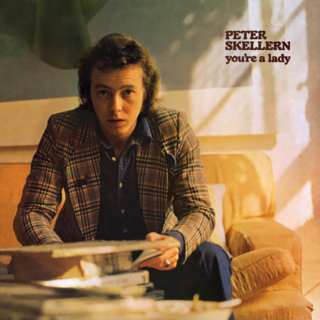
You're a Lady is the debut album by English singer-songwriter Peter Skellern, released in 1972 by Decca Records. The album was named after Skellern's first single, issued in August 1972 and a number 3 hit on the UK Singles Chart. The album was recorded in five sessions at Decca Studios in London and established Skellern's unique musical style, encompassing influences from church music and northern brass band music, reflecting his Lancashire origin. A classically trained pianist, Skellern wrote the album while working as a porter at a hotel.

Not Without a Friend is the second album by English singer-songwriter Peter Skellern, released on 25 January 1974 by Decca Records. Arriving just over a year after Skellern's first album You're a Lady and the single success of its title track, the album was produced by Derek Taylor, former press officer for the Beatles then working for WEA (Warner-Elektra-Atlantic). Despite positive reviews, Not Without a Friend and its single "Still Magic" failed to chart. It was reissued in 2019 by Mint Audio as part of Peter Skellern: The Complete Decca Recordings, a release crowdfunded by fans through a Kickstarter campaign.

















